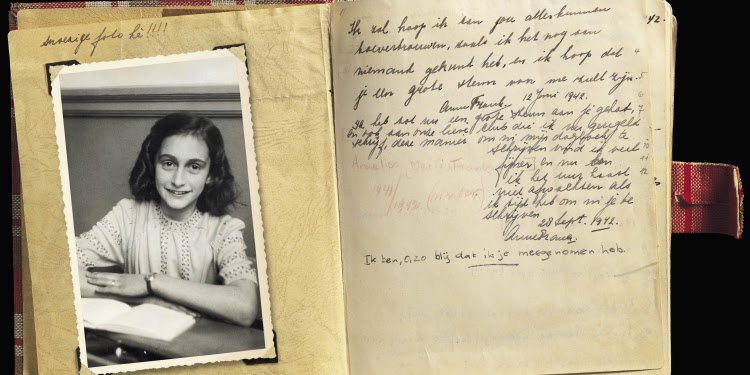Remembering Anne
The Fellowship | June 11, 2018

In the minds of the world, Anne Frank will always be the teenage girl whose words have moved so many and one of the millions of Holocaust victims who died at the hands of the Nazis. But, to one woman Anne was a friend. Tomorrow would’ve been the young diarist’s 89th birthday, we bring you Epoch Times’ Amelia Pang’s story about Anne’s childhood companion and what she has done in the decades since she lost her best friend:
For decades, Jacqueline van Maarsen told no one. She did not want people to know she was Anne Frank’s best friend. As much as Anne Frank’s diary was about a girl who was eager to live, to talk about Anne Frank was to remember that she was dead. And to remember that Anne Frank was dead, was to remember that van Maarsen’s aunts, uncles, cousins, and most of her classmates were dead.
After the second world war, van Maarsen salvaged what she could of her life and tried to move on. She married a childhood friend, had three children, and worked as a successful bookbinder in Amsterdam.
“I told my children not to tell their friends at school that their mother was Anne Frank’s friend,” she said. “If people knew they would always ask me questions.”
The mention of Anne Frank would unleash a deluge of disturbing images in her mind: A shivering, bald Anne dying of typhus in the Bergen-Belsen concentration camp; van Maarsen’s favorite young cousins slowly writhing to death in a gas chamber in the Sobibór extermination camp.
“I did not want to think about these things all the time,” she said.
She knew she would not be able to handle the public’s questions about Anne Frank because she could barely handle the inquiries from Otto Frank, Anne Frank’s father.
To the grief-stricken father, van Maarsen was a conduit for Anne Frank’s psyche.
Around two months after the second world war ended, a rail-thin Otto Frank showed up at van Maarsen’s house in Amsterdam.
“It was so strange to see him after all that time, to see him without Anne,” she recalled.
Otto Frank would visit the 16-year-old van Maarsen frequently to talk about his dead daughter. He cried often and unabashedly during their talks.
“I did not want to talk to him. It was painful. But my mother told me to keep talking to him because he wanted to talk to me so much,” van Maarsen said. “I think to him, Anne Frank was still alive in my mind.”
For the rest of his life, Otto Frank would continue to ask van Maarsen questions about Anne.
What would Anne Frank be doing today if she were alive?
